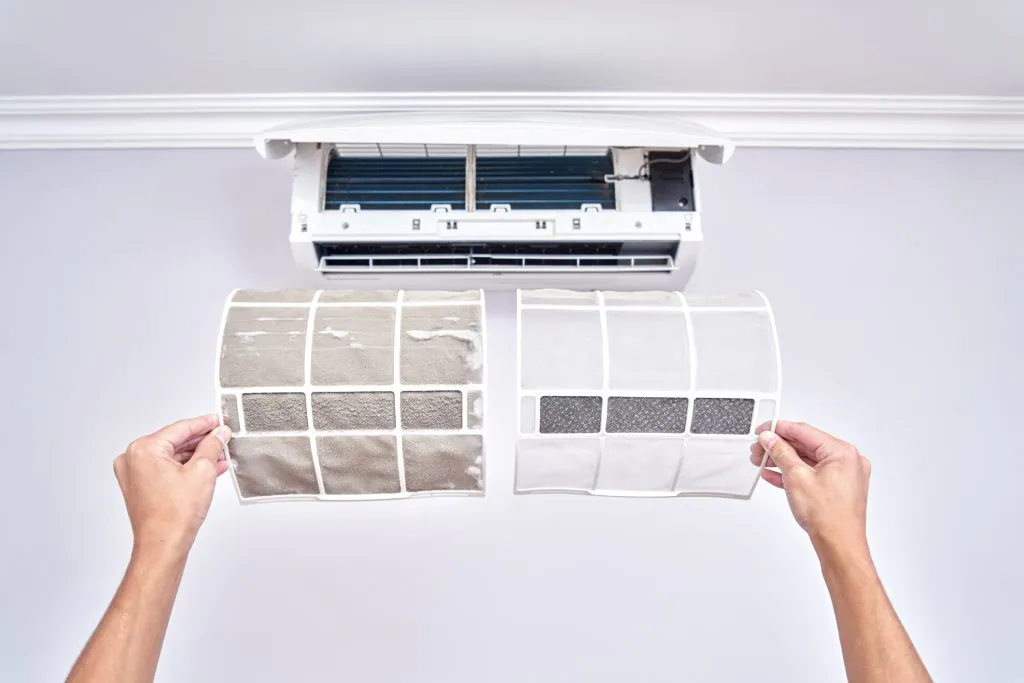When it comes to maintaining a healthy and efficient AC system, one crucial factor to consider is the lifespan of your air filters. Air filters play a critical role in ensuring clean and fresh indoor air quality, but they do require regular replacement. In this blog post, we will explore the question, “How long do air filters last?”
What Does an Air Filter Do?
An air filter serves as a barrier, capturing dust, debris, pet dander, and other particles from the air as it circulates through the ductwork. This filtration process not only ensures cleaner indoor air quality but also helps protect the system’s components from damage caused by the accumulation of particles. Therefore, a well-maintained air filter plays a vital role in both air quality and the longevity of your AC system.
Factors Affecting Your Air Filter Lifespan
Several factors contribute to the lifespan of an air filter. Understanding these factors will help you determine how long your air filter is likely to last and when a replacement is necessary. Here are the key factors to consider:
1. Filter Type: Air filters come in various types, including fiberglass, pleated, HEPA (High-Efficiency Particulate Air), and washable filters. Each type has its own lifespan and efficiency level. Fiberglass filters, for example, are typically less expensive but may need replacement as often as every 30 days, while pleated filters usually last between 3 to 6 months. HEPA filters, known for their superior filtration capabilities, typically last longer, ranging from 6 to 12 months.
2. Indoor Air Quality: The indoor air quality of your home also plays a significant role in determining the lifespan of your air filter. If you live in an area with high dust, pollen, or pollution levels, your air filter may clog up more quickly and require more frequent replacements. Similarly, households with pets may need to change their air filters more often due to pet hair and dander.
3. HVAC Usage: The frequency at which you use your HVAC system also affects air filter lifespan. If your system operates continuously or for extended periods, the air filter may accumulate more particles faster, resulting in reduced efficiency and a shorter lifespan. On the other hand, if you only use your HVAC system occasionally, the air filter may last longer.
4. Outdoor Environment: The outdoor environment surrounding your home can impact the lifespan of your air filter. Homes situated in dusty or polluted areas may require more frequent air filter replacements compared to those in cleaner environments.
How to Determine When It’s Time for a Replacement
While the factors mentioned above provide a general idea of air filter longevity, it’s essential to determine when it’s time for a replacement based on the specific conditions in your home. Here are a few telltale signs that indicate it’s time to replace your air filter:
1. Visual Inspection: Take a look at the air filter; if it appears dirty and clogged with debris, it’s a clear indicator that it needs to be replaced. In most cases, a clean air filter will have a white or off-white color, while a dirty filter may appear gray or discolored.
2. Decreased Airflow: If you notice a decrease in airflow from your vents or uneven cooling/heating in your home, it may be due to a clogged air filter. Reduced airflow suggests that the filter has accumulated a significant amount of debris and is obstructing the proper circulation of air.
3. Increased Energy Consumption: A clogged air filter can lead to reduced HVAC system efficiency, causing it to work harder and consume more energy. If you notice an unexplained increase in your energy bills, it’s worth checking the air filter and considering a replacement.
4. Frequency of Replacements: As you replace your air filters over time, you’ll start to develop a pattern. If you consistently observe faster-than-usual clogging or reduced efficiency, it might be an indication that you need to use a higher-rated filter or consider other measures to improve indoor air quality.
Conclusion
The lifespan of an air filter depends on various factors, including the filter type, indoor air quality, and outdoor environment. Understanding these factors and regularly inspecting your air filter can help you determine when it’s time for a replacement. Make air filter maintenance a priority, and you’ll enjoy cleaner air and enhanced system performance in your home.
